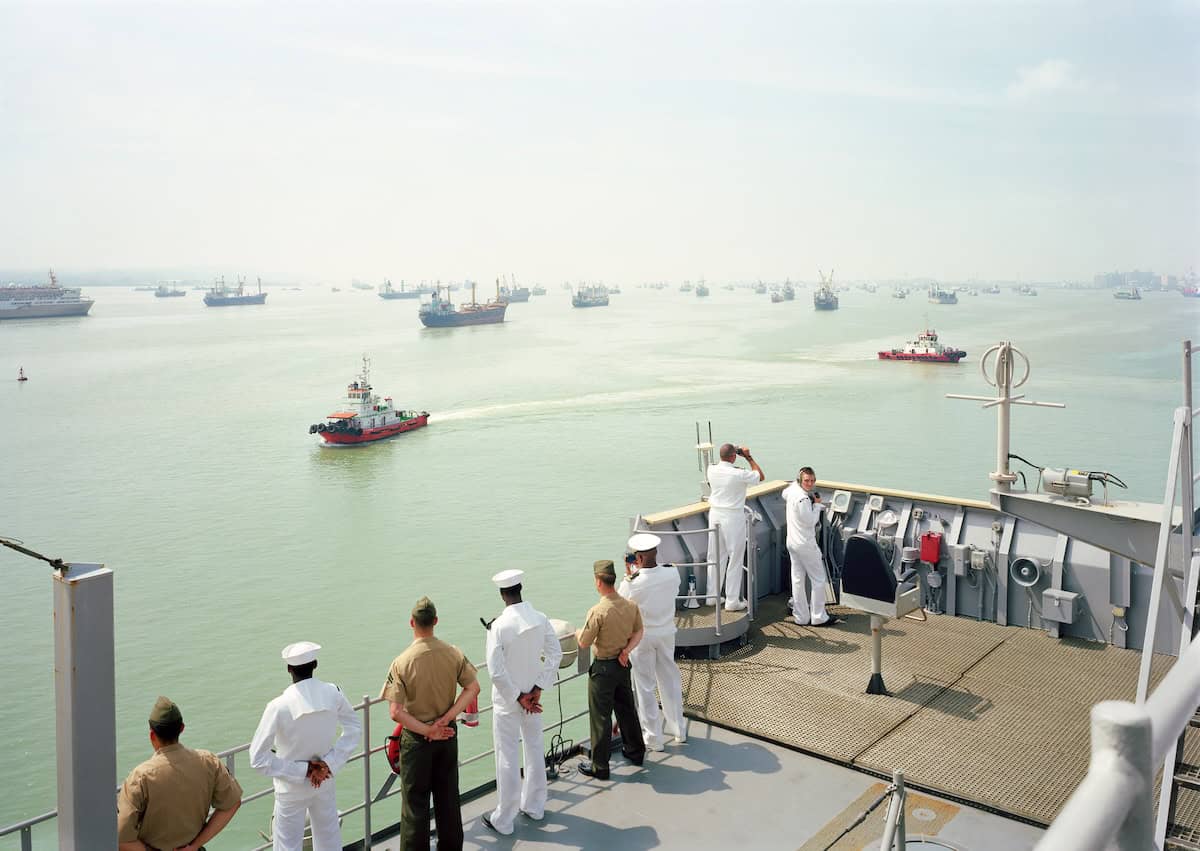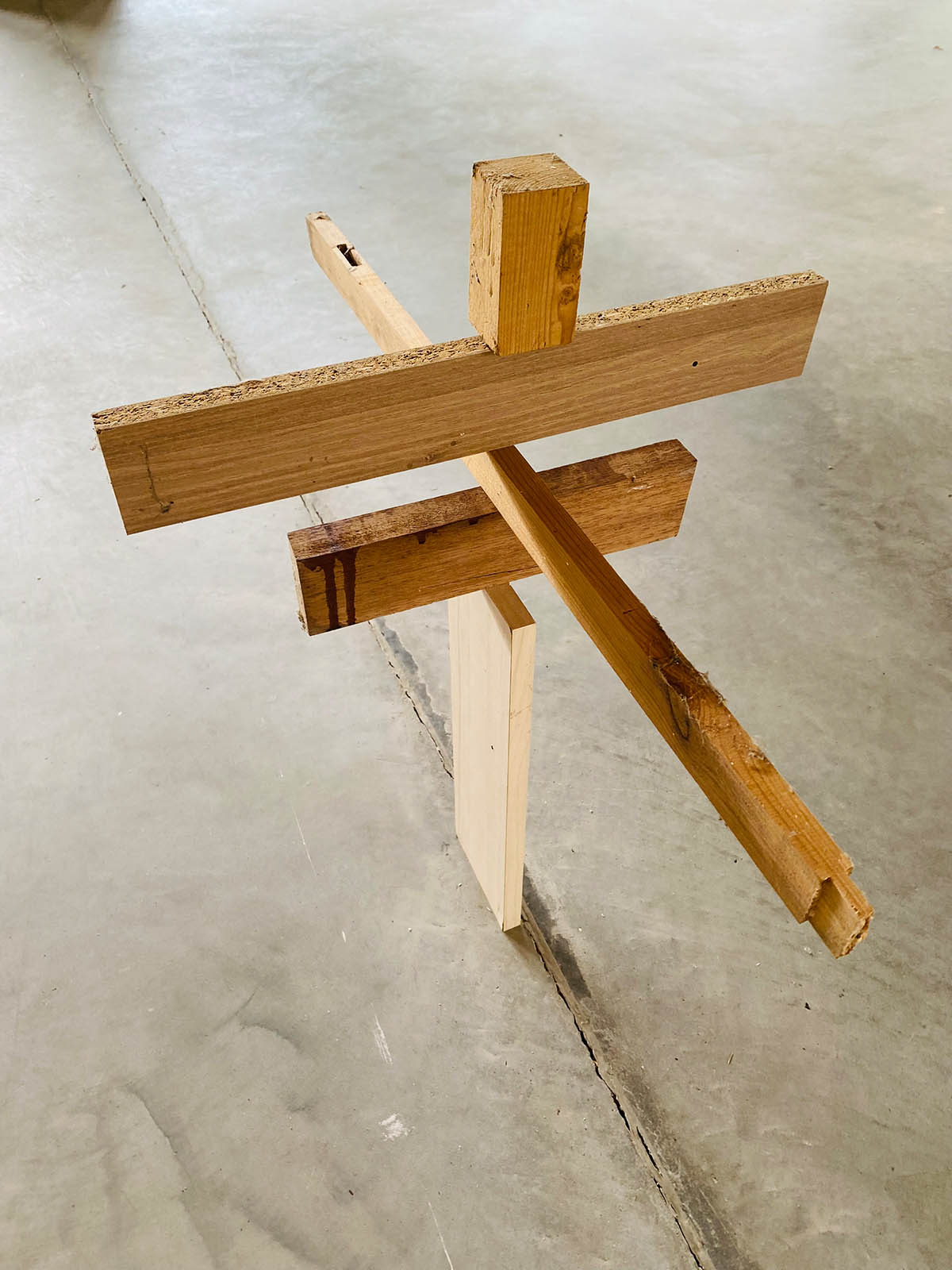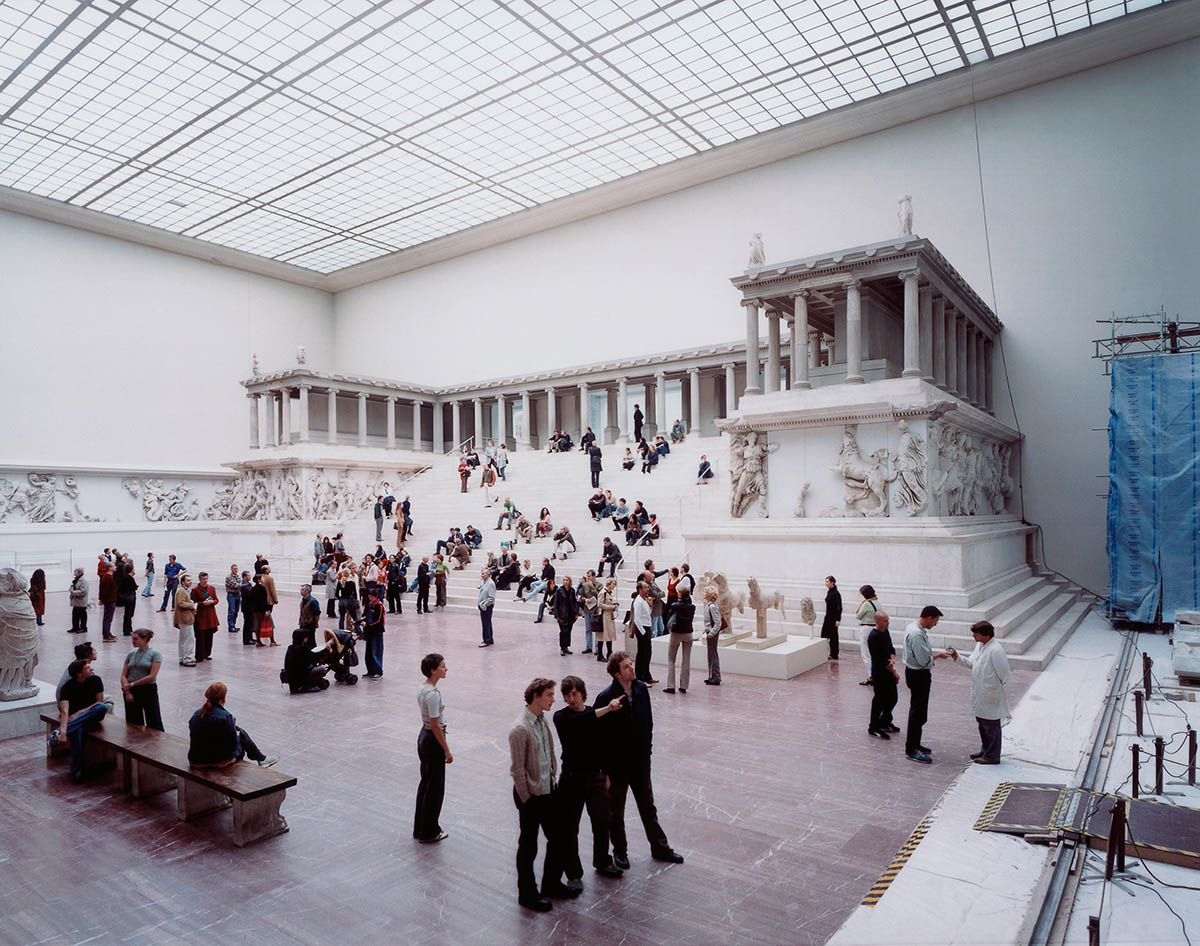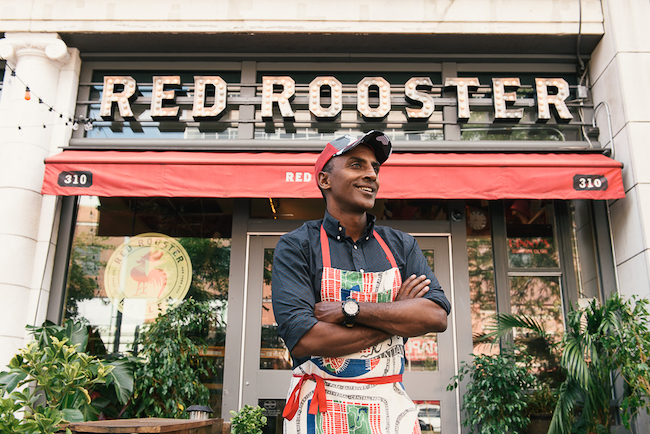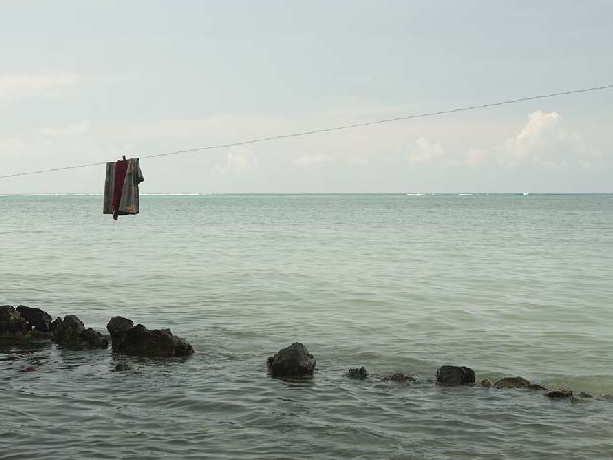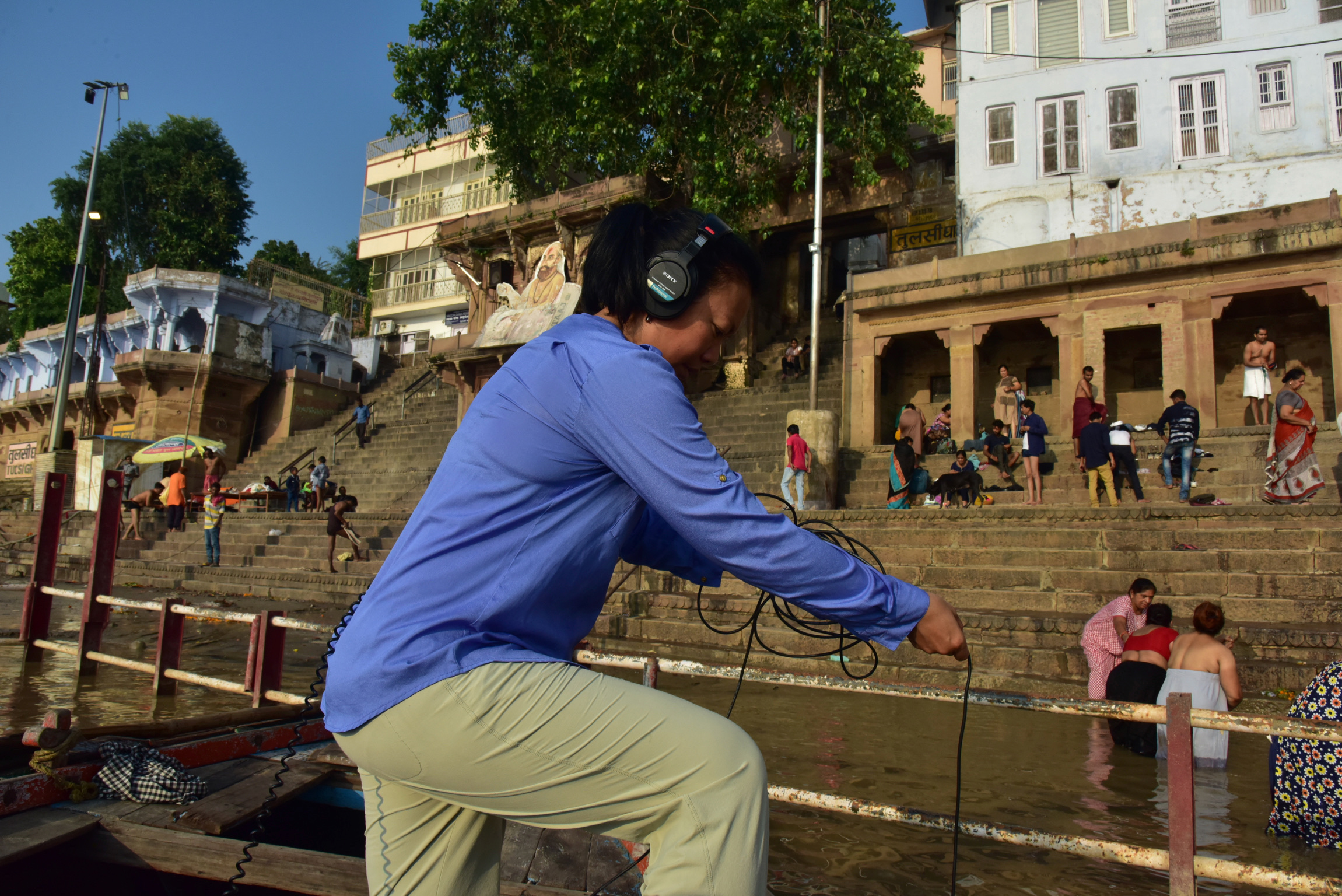An-My Lê, Maps and Legends: Photography Between Histories and Beyond Borders
Please RSVP to receive reminders about the event.
Event Description
Internationally renowned photographer An-My Lê seeks “to photograph the landscape in such a way that it suggests a universal history, a personal history, a history of culture.” In this lecture, Lê presents two new series of recent photographs, Dark Star and Grey Wolf, continuing her exploration of the contradictory nature of the manifest and the sublime within the contemporary American landscape, and the latter as a present-day locus of technology, power and ambition. In Lê’s work, scale is both temporal and historical, encompassing themes of displacement, war, memory, and resilience. These are present in her earliest black and white pictures of Vietnam (1994-1998) in which she returned to a scarred homeland as a political refugee, to her pictures of war re-enactors in the southern U.S. (Small Wars, 1999-2002), to staged military training exercises in the American desert (29 Palms, 2003-04), to her more recent lens on polarization in the United States through a series of historical fragments (Silent General, 2015 to today). With extraordinary consideration of history and culture, Lê’s view of her subjects often incorporates an elevated perspective to achieve its signature precision and ethical neutrality. In zooming out to look closer, her stepped-back “proscenium framing” brings into crystal clear vision her observations and stories, not unlike layers of a history painting.
Speaker
An-My Lê is an internationally renowned photographer based in New York. Her work often addresses the impact of war on culture and the environment. She is the recipient of numerous awards, including the American Academy of Arts and Letters Award in Art, the MacArthur Foundation Fellowship, the Guggenheim Fellowship, and the Louis Comfort Tiffany Foundation award. Lê’s work has been exhibited widely, including in the Whitney Biennial, Taipei Biennial, Minneapolis Institute of Art, The Metropolitan Museum of Art, and the Tate Modern. In 2020, Lê’s major exhibition at the Carnegie Museum of Art traveled to the Amon Carter Museum and the Milwaukee Art Museum, with a comprehensive catalog published by Aperture. Between Two Rivers/Giữa hai giòng sông/Entre deux rivières, a 30-year survey of her career, including her forays into film, textiles, and installation was recently shown at the Museum of Modern Art, New York. Lê is currently the Charles Franklin Kellogg and Grace E. Ramsey Kellogg Professor in the Arts at Bard College, New York.
Timothy Archambault, “The Silent Echo: Architectures of the Void”
Event Description
Architect, composer, and musician Archambault will give a lecture on the symbiotic relationship between the void, Indigenous and Modern Architecture, Music Archaeology, and the process of revitalizing traditions within Indigenous flute music. The lecture concludes with a flute performance showcasing a synthesis of tradition and innovation, incorporating existential themes. Join us for an enriching experience that delves into cultural retrieval, the interconnectedness of space, and the enduring power of sound.
Speaker
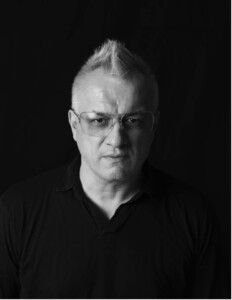
Timothy Archambault, a Miami-based polymath with over 30 years of international architectural experience, serves as the Director of Americas for Oppenheim Architecture. While acquiring degrees in architecture and fine arts from the Rhode Island School of Design, he studied music theory at Brown University. Before joining Oppenheim Architecture, Archambault contributed to significant projects with OMA, including the MahaNakhon Tower (Bangkok), the Prada NY store, and the Lehmann Maupin Gallery (NY). Additional notable projects encompass the Wyly Theatre (Dallas) with OMA/REX Architecture, the Walt Disney Concert Hall (LA), and the Guggenheim Museum Bilbao with Frank O. Gehry & Associates.
Beyond his architectural achievements, Archambault is an Indigenous flutist and composer. His repertoire includes twentieth-century Indigenous music, contemporary Indigenous compositions, and traditional Canadian Algonquin flute songs. Several of his recordings are archived in the Smithsonian National Museum of the American Indian. Archambault is the Hereditary Senator of the Kichesipirini Algonquin First Nation, a member of the Métis Nation of Quebec, and the First Nations Composers Initiative. He co-founded thecreativedestruction, a contemporary art collaborative with his wife, CYJO, and co-edited the Encyclopedia of Native American Music of North America.
This event is part of ArtsThursdays , a university-wide initiative supported by Harvard University Committee on the Arts (HUCA).
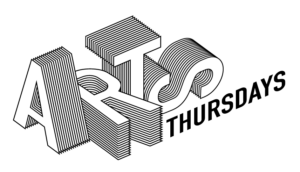
Abraham Cruzvillegas, “Centring: A Definitely Unfinished and Temporary Structure for Art Making”
A recording of this event is available with audio description .
Event Description
Visual artist Abraham Cruzvillegas will deliver the spring 2023 Rouse Visiting Artist Lecture. Cruzvillegas will show recent art projects and speak about his diverse approaches to methodology, language, materials, and narratives.
Speaker
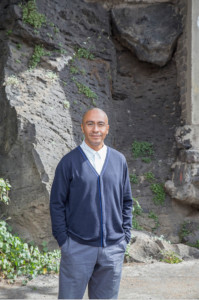
Abraham Cruzvillegas (Mexico City, 1968)
His work has been exhibited in diverse venues, including: The Bass, Miami Beach (2022), The Contemporary Austin (2019), Aspen Art Museum (2019), Honolulu Biennial (2019), MUCA Campus, Mexico City (2018), Kunsthaus Zürich (2018), Honolulu Biennal (2019), Sydney Biennial (2018), Ginza Maison Hermès: Le Forum, Tokyo (2017); Nicaragua Biennial (2016), Tate Modern, London (2015), Sharjah Biennial 12 (2015), Jumex Museum, Mexico City; Museo Amparo, Puebla (2014), Haus der Kunst, Munich (2014), Walker Art Center, Minneapolis (2013), dOCUMENTA 13, Kassel (2012), 12th Istanbul Biennial, Istanbul (2011), 6th Biennial Media City Seoul (2010), REDCAT, Los Angeles (2009), 10th Biennial de Havana (2009), Centre for Contemporary Arts, Glasgow, (2008), 50th Venice Biennale (2003), among others.
Harvard University Press published his collected writings The Logic of Disorder (2016).
This event is part of ArtsThursdays , a university-wide initiative supported by Harvard University Committee on the Arts (HUCA).
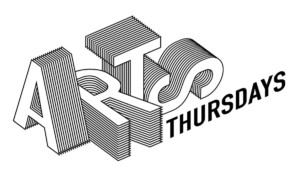
Lucy Raven, “State Change and Old Gags”
Event Description
The GSD welcomes visual artist Lucy Raven to deliver the fall Rouse Visiting Artist Lecture.
In this presentation, artist Lucy Raven will present materials relating to several recent moving image installations, including Ready Mix, which was commissioned by and premiered at Dia Chelsea in 2021, and Demolition of a Wall (Album 1 and Album 2), which premiered at the 2022 Whitney Biennial and at WIELS. Together, these pieces explore the properties of extreme pressure and material state change occurring respectively at a concrete plant in central Idaho and an explosives range in southern New Mexico. They form the first two sections of a trilogy of “Westerns” Raven has been developing in locations throughout the Western United States.
For the Q+A, Raven will be joined by David Joselit , Chair of the Department of Art, Film, and Visual Studies at Harvard University.
Speaker
Lucy Raven was born in Tucson, Arizona, in 1977. She received a BFA in studio art and a BA in art history from the University of Arizona, Tucson, in 2000, and an MFA from Bard College’s Milton Avery Graduate School of the Arts, Annandale-on-Hudson, New York, in 2008. Her work has been exhibited in solo presentations at the Nevada Museum of Art, Reno (2010); Hammer Museum, Los Angeles (2012); Portikus, Frankfurt (2014); Yerba Buena Center for the Arts, San Francisco (2014); VOX centre de l’image contemporaine, Montreal (2015); Columbus Museum of Art, Ohio (2016); and Serpentine Galleries, London (2016–17). Select group shows include those at Mass MoCA, North Adams, Massachusetts (2008–09); Wexner Center for the Arts, Ohio State University, Columbus (2010); Whitney Museum of American Art, New York (2013); and Los Angeles County Museum of Art (2018–19). Additionally, Raven’s work was included in the 2012 Whitney Biennial, New York; 2016 Montreal Biennial; and 2018 Dhaka Art Summit, Bangladesh. With Vic Brooks and Evan Calder Williams, she is a founding member of 13BC, a moving-image research and production collective. Raven teaches at the Cooper Union School of Art in New York.
Archive Matrix Assembly: Nana Last and Thomas Struth
| Event Information |
|---|
| All are invited to watch and participate online in this program by tuning into this page at the noted start time. No pre-registration is required. Online audience members will be able to submit questions throughout the event using Vimeo’s Q&A function. If you would like to submit questions for the speaker in advance of the event, please click here.
Harvard ID holders are also welcome to attend programs in person, except where an event is listed as online only. Live captioning will be provided during this event livestream. Learn more about accessibility services at public programs. |
Speakers
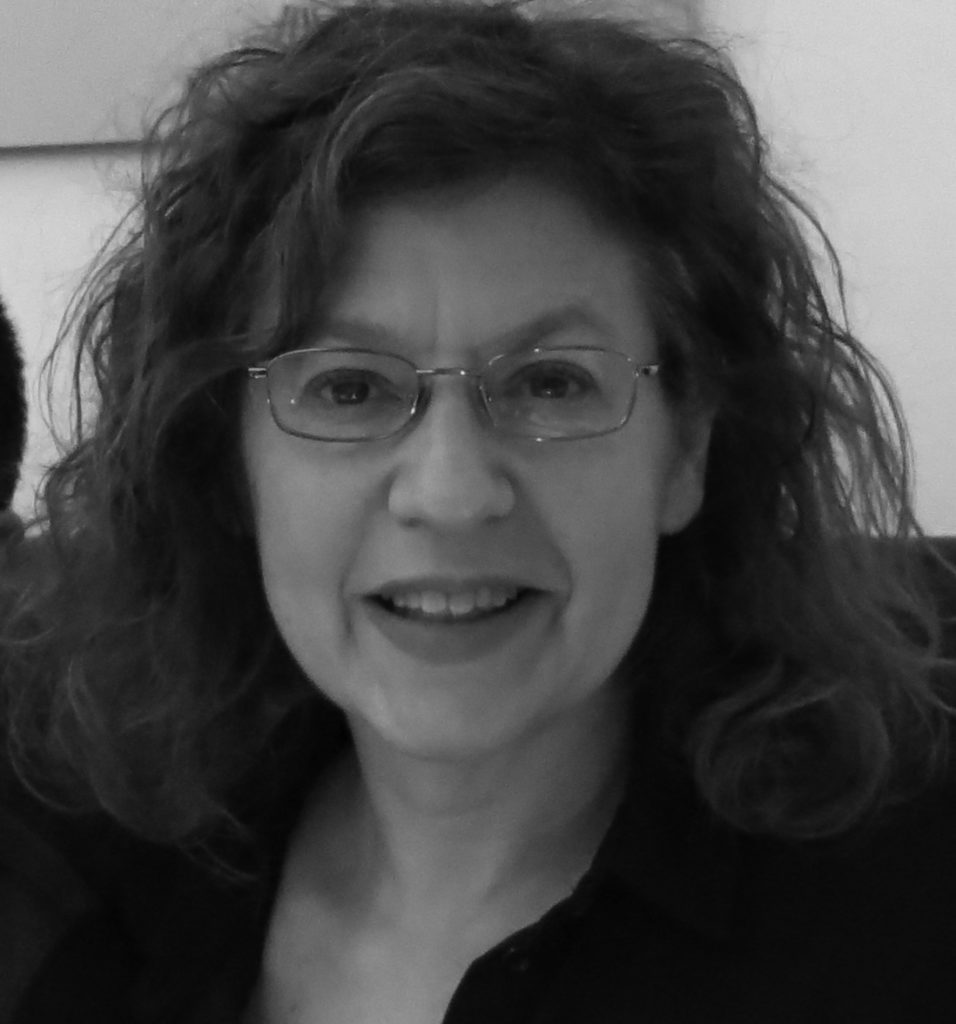
Nana Last MArch ’86 is an art and architecture theorist. She is Associate Professor of Architecture at the University of Virginia, where she founded the interdisciplinary Ph.D. Program in the Constructed Environment. Her writing considers relations between architecture, art, philosophy and science in modern and contemporary society. Her books include: Wittgenstein’s House: Language, Space and Architecture (2008, 2012, Fordham University Press), and Archive Matrix Assembly: The Photography of Thomas Struth , (2021 Applied Research + Design). She is currently working on a book tentatively entitled: “From Text to Algorithm: Architecture and Big Data” that examines the epistemological impacts of the advent of big data on architecture, art and urbanism. Her work has been supported by the Graham Foundation for Advance Studies in the Fine Arts. She received a Ph.D. in Architecture and Art: History, Theory and Criticism from the Massachusetts Institute of Technology and a Master’s degree in Architecture from Harvard University.
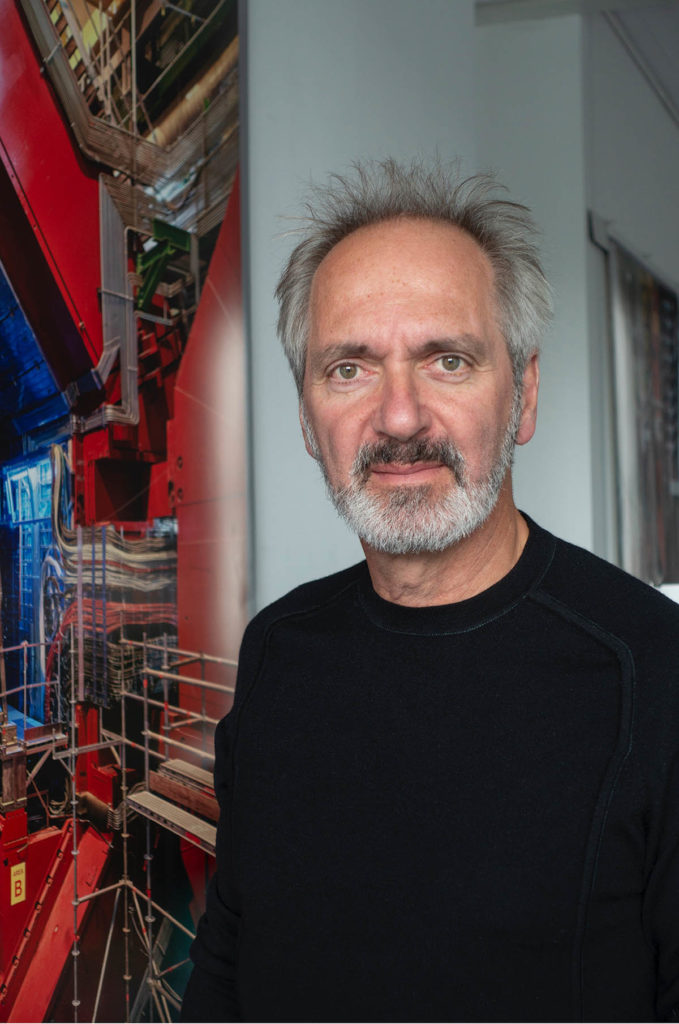
Thomas Struth was born in 1954 in Geldern, Germany and studied at the Kunstakademie Düsseldorf. He was part of the first generation of artists to study photography with Bernd and Hilla Becher. Comprehensive solo exhibitions of Struth’s work have been presented at institutions including the Stedelijk Museum in Amsterdam, The Tokyo National Museum of Modern Art, The Metropolitan Museum of Art in New York, the Museo del Prado in Madrid, the Museum Folkwang in Essen and Haus der Kunst in Munich. Between 1993-1996 Struth was the first Professor for Photography at the Staatliche Hochschule für Gestaltung in Karlsruhe. Struth was awarded the Spectrum International Prize for Photography by Kulturstiftung Lower Saxony. He is Honorary Fellow of The Royal Photographic Society and Foreign Honorary Member of the American Academy of Arts and Letters. Struth’s work is featured in various public art collections, including Pinakothek der Moderne, Munich, the Centre Georges Pompidou, Paris, the Tate Gallery, London, the Galleria d’Accademia, Florence, the National Museum of Modern Art, Tokyo, the Stedelijk Museum, Amsterdam, the Art Institute of Chicago, the Museum of Modern Art, New York, and the Solomon R. Guggenheim Museum, New York. The artist lives in Berlin.
Zoe Leonard with José Esparza Chong Cuy
| Registration Information |
|---|
| The GSD’s Fall 2021 Public Programs are all virtual and require registration. Click here to register for Rouse Visiting Artist Lecture: Zoe Leonard with José Esparza Chong Cuy. The event will also be live streamed to the Harvard GSD YouTube page. Only viewers who are attending the lecture via Zoom will be able to submit questions for the Q+A. If you would like to submit questions for the speakers in advance of the event, please click here. Live captioning will be provided during this event. |
Event Description
The artist Zoe Leonard will present a work in progress titled Al Rio/To the River and will engage in conversation about the project with curator José Esparza Chong Cuy.
Al Rio/To the River is a large-scale photographic project centered on the Rio Grande/Rio Bravo, in particular the 1,200-mile section of the river that is used to demarcate the international boundary between Mexico and the United States. Begun in 2016 and currently still a work in progress, the work engages in a sustained observation of the water, surrounding landscape, and built environment, including the towns, cities, factories, and infrastructure projects—dams, levees, bridges, irrigation trenches, pipelines, fences, gates, border checkpoints, and detention facilities—built alongside, over, and through the riverbed. Viewed from multiple vantage points, the river is considered as a natural feature, a water resource, a political border, and an inhabited region. The project considers layered histories, complex relationships, and the interconnectedness of life on both sides of the watershed.
The completed work will be exhibited at Mudam, Luxembourg, and Musée d’Art Moderne de la Ville de Paris in 2022, with an accompanying publication.
Speakers
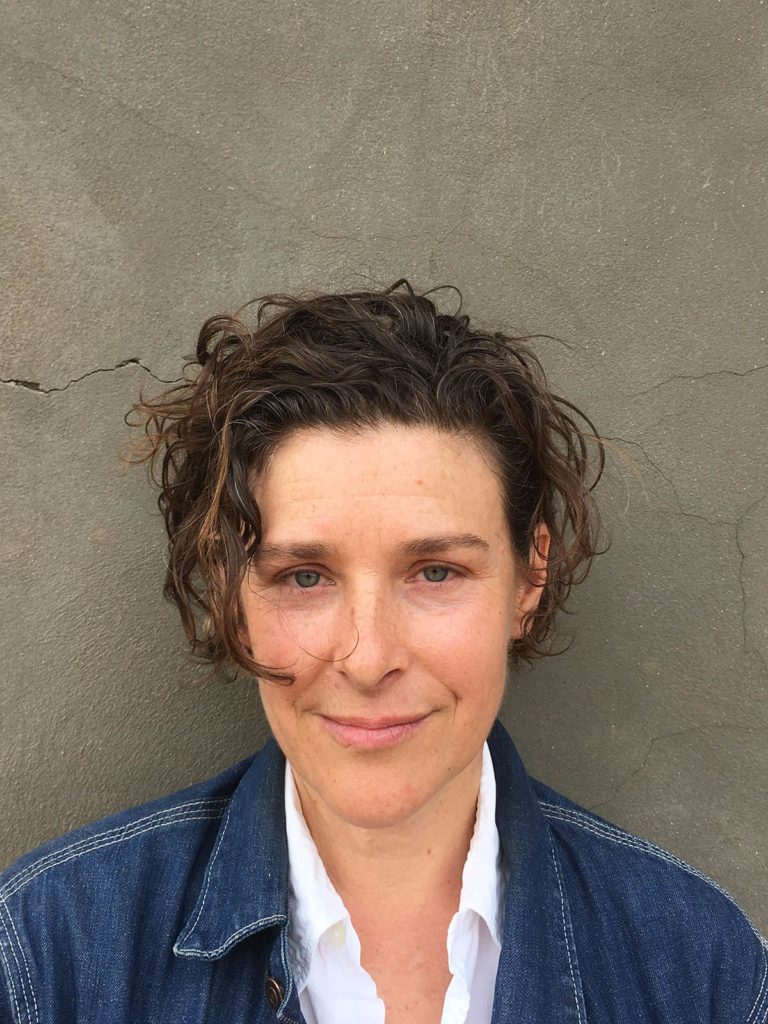
New York-based artist Zoe Leonard balances rigorous conceptualism with a distinctly personal vision in her work, which merges photography, sculpture, and installation. By employing strategies of repetition, shifting perspectives, and a multitude of printing processes, Leonard’s practice probes the politics of representation and display. Leonard explores themes such as gender and sexuality, loss and mourning, migration, displacement, and the urban landscape. Her photography specifically invites us to contemplate the role that the medium plays in constructing history, and to consider the roots of contemporary photographic culture. More than its focus on any particular subject, however, Leonard’s work encourages the viewer to reconsider the act of looking itself, drawing attention to observation as a complex, ongoing process.
Leonard has exhibited extensively since the late 1980s, including solo exhibitions at the Whitney Museum of American Art, New York (2018), Museum of Modern Art, New York (2015), Chinati Foundation, Marfa, Texas (2013-14); Camden Arts Centre, London (2012); Museum Moderner Kunst Stifting Ludwig, Vienna (2009), Pinakothek der Moderne, Munich (2009); Reina Sofia, Madrid (2008), Dia: Beacon (2008); The Wexner Center for the Arts, Columbus, Ohio (2007); Fotomuseum Wintherthur (2007); Philadelphia Museum of Art (1998); Kunsthalle Basel (1997); Secession, Vienna (1997), and The Renaissance Society, Chicago (1993). Group exhibitions include Documenta IX (1992), Documenta XII (2007), and Whitney Biennials in 1993, 1997 and 2014. Publications include Analogue (2007), Zoe Leonard: Photographs (2008), You see I am here after all (2010), Available Light(2014), and Survey (2018).
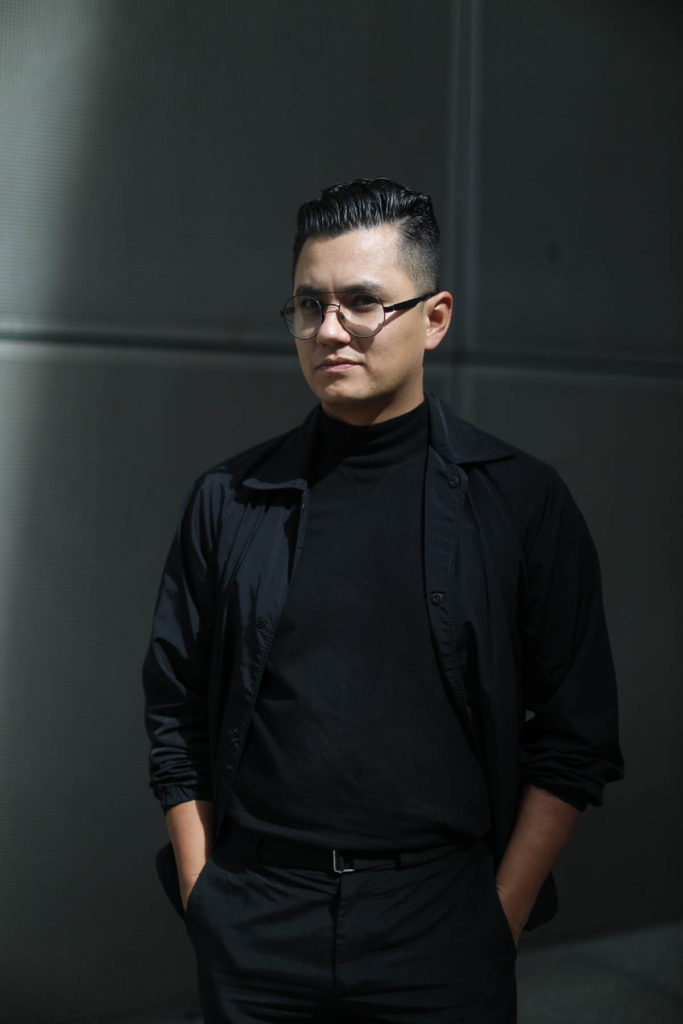
José Esparza Chong Cuy is the newly arrived Executive Director and Chief Curator of Storefront for Art and Architecture
. At Storefront, José introduced a new curatorial framework called Building Cycles, which presents a year-long program of exhibitions and events that explores the notion of building as both place and process, laying the groundwork for new ways of making spaces, places, and relationships with and within our surroundings.
Before his role at Storefront, José served as the Pamela Alper Associate Curator at the Museum of Contemporary Art Chicago (MCA), which he joined in 2016. At the MCA, he co-organized a major collection exhibition to celebrate the museum’s 50th anniversary and curated solo shows of Tania Pérez Córdova and Mika Horibuchi, as well as a major commission with Federico Herrero. With MCA, José also recently oversaw a solo exhibition of Jonathas de Andrade, a collection show of recent acquisitions, and a large-scale retrospective on the life and work of Lina Bo Bardi, co-organized with the Museu de arte de São Paulo and the Museo Jumex in Mexico City.
Prior to the MCA, José was Associate Curator at the Museo Jumex. From 2007-2012 he lived in New York and held positions as Curatorial Associate at Storefront for Art and Architecture, Research Fellow at the New Museum for Contemporary Art, and contributing editor at Domus magazine. In 2013 he was Co-Curator of the Lisbon Architecture Triennial, titled Close, Closer. He is a graduate of Columbia University’s M.S. in Critical, Curatorial, and Conceptual Practices in Architecture.
Marcus Samuelsson in conversation with Thelma Golden, Toni L. Griffin and Mark Raymond
The GSD is pleased to present a series of talks and webinars broadcast to our audiences via Zoom.
*This lecture will be ONLINE ONLY. For security reasons, virtual attendees must register. Scroll down to find complete instructions for how to register.
Event Description
Celebrated chef Marcus Samuelsson will share reflections on race, class, place and equity in the American food landscape, drawing from his forthcoming book The Rise: Black Cooks and the Soul of American Food . He will then be joined by GSD Professor in Practice and founder of urbanAC , Toni L. Griffin; Thelma Golden, Director and Chief Curator of the Studio Museum in Harlem; and Mark Raymond, Director of the Graduate School of Architecture at the University of Johannesburg, South Africa. The group will come together for a conversation exploring the deep and intertwining relationships between memory, identity and authorship that exist for Black creatives who reference, make and keep place through their work.
Speakers
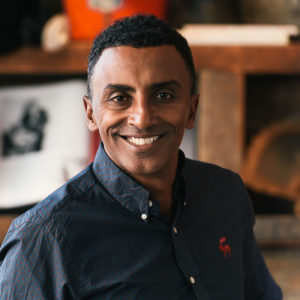
Marcus Samuelsson is the acclaimed chef behind many restaurants worldwide including Red Rooster Harlem, MARCUS Montreal, and Marcus B&P in Newark, NJ. Samuelsson was the youngest person to ever receive a three-star review from The New York Times and has won multiple James Beard Foundation Awards including Best Chef: New York City and Outstanding Personality for No Passport Required on PBS. He is the author of multiple books including The New York Times bestselling memoir Yes, Chef and his latest book– The Red Rooster Cookbook: The Story of Food and Hustle in Harlem. His podcast titled This Moment with Swedish rapper Timbuktu is out now.
Follow Samuelsson on Instagram , Facebook , and Twitter at @MarcusCooks.
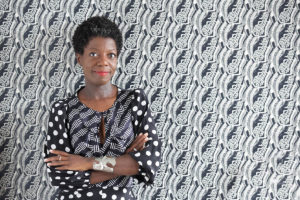
Thelma Golden is Director and Chief Curator of The Studio Museum in Harlem, where she began her career in 1987 before joining the Whitney Museum of American Art in 1988. She returned to the Studio Museum in 2000 as Deputy Director for Exhibitions and Programs, and was named Director and Chief Curator in 2005. Golden was appointed to the Committee for the Preservation of the White House by President Obama in 2010, and in 2015 joined the Barack Obama Foundation’s Board of Directors. Golden was the recipient of the 2016 Audrey Irmas Award for Curatorial Excellence. In 2018, Golden was awarded a J. Paul Getty Medal. She has received honorary degrees from Bard College, the City College of New York, Columbia University, and Smith College.
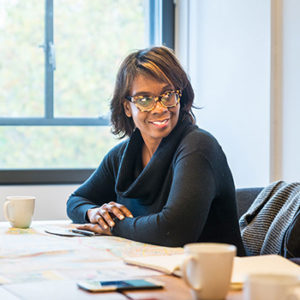
Toni L. Griffin is the founder of urbanAC, based in New York, specializing in leading complex, trans-disciplinary planning and urban design projects for multi-sector clients in cities with long histories of spatial and social injustice. Recent and current clients include the cities of Detroit, Memphis, Milwaukee, Pittsburgh, St. Louis and Philadelphia.
Toni is also Professor in Practice of Urban Planning at the Harvard Graduate School of Design, and leads The Just City Lab , a research platform for developing values-based planning methodologies and tools, including the Just City Index and a framework of indicators and metrics for evaluating public life and urban justice in public plazas.
Most recently, Ms. Griffin was a Professor of Architecture and Director of the J. Max Bond Center on Design for the Just City at the Spitzer School of Architecture at the City College of New York. Toni has also held several public sector positions including, Director of Community Development for Newark, New Jersey; Vice President and Director of Design for the Anacostia Waterfront Corporation in Washington, DC; and Deputy Director for Revitalization and Neighborhood Planning for the DC Office of Planning. She began her career as an architect with Skidmore, Owings & Merrill LLP in Chicago, where she became an Associate Partner.
Ms. Griffin received a Bachelors of Architecture from the University of Notre Dame and a Loeb Fellowship from the Harvard University Graduate School of Design. In 2014, Toni was the Visiting Associate Professor and Theodore B. and Doris Shoong Lee Chair in Real Estate Law and Urban Planning, in the Department of City and Regional Planning at University of California, Berkeley. Toni has several articles on urban planning and has lectured extensively in the United States, Europe and South America and has published several articles on design, urban justice, legacy cities and Detroit. In 2016, President Barack Obama appointed Toni to the US Commission on Fine Arts.
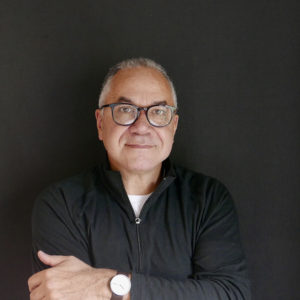
Mark Raymond is an architect and educator. He has practiced on his own account and in collaboration with others on architectural and urban planning and design projects in Trinidad and Tobago and throughout the Caribbean and has also been actively involved with architectural education, lecturing and teaching at institutions globally. After graduating from the Architectural Association in London he worked on projects in Europe with Norman Foster, Conran and Ulrike Brandi before returning to Port of Spain, Trinidad and establishing his own practice. Mark recently completed a PhD through RMIT’s invitational creative practice-based research programme and recently accepted the position of Director of the Graduate School of Architecture at the University of Johannesburg in South Africa – which he hopes to take up once the borders reopen. Current research interests address the engagement of design pedagogy and practice in processes of transformation and social justice.
How to Join
Register to attend the lecture here . Once you have registered, you will be provided with a link to join the lecture via Zoom. This link will also be emailed to you.
The event will also be live streamed to the GSD’s YouTube page . Only viewers who are attending the lecture via Zoom will be able to submit questions for the Q+A. If you would like to submit questions for the speakers in advance of the event, please click here .
Live captioning will be provided during this event. A transcript will be available roughly two weeks after the event, upon request.
CANCELLED – Stefanie Hessler and Armin Linke, “Prospecting Ocean: Artistic Research in the Oceanic Anthropocene”
This event has been cancelled. We apologize for any inconvenience this may cause.
Please join us for a Rouse Visiting Artist lecture delivered by curator and writer Stefanie Hessler and photographer and filmmaker Armin Linke. Hessler and Linke will discuss their project Prospecting Ocean, which investigates the entanglement of industry, politics, culture, and economics at the frontier of ocean excavations through an innovative union of art and science.
Stefanie Hessler is a curator and writer. Her work focuses on interdisciplinary processes, long-term collaborations with artists and researchers from different fields, and systems, be they ecological, economic, or societal. She is the director of Kunsthall Trondheim in Norway.
Recent curatorial projects for TBA21–Academy include “Joan Jonas: Moving Off the Land II” at Ocean Space, Venice (2019); “Armin Linke: Prospecting Ocean” at the National Research Council – Institute of Marine Sciences, Venice (2018); “Fishing for Islands” at Hamburger Bahnhof, Berlin (2017); and “Tidalectics” at TBA21–Augarten, Vienna (2017). Other recent exhibitions include the 6th Athens Biennale “ANTI” (2018); “Sugar and Speed” at the Museum of Modern Art, Recife (2017); the 8th Momentum Biennial, Moss (2015); and “Outside” at Index – The Swedish Contemporary Art Foundation, Stockholm (2014); and the symposium “Practices of Attention” at the 33rd Bienal de São Paulo (2018).
Hessler has edited books like Life Itself, including 173 texts from different disciplines on the question of what life essentially is, published by Moderna Museet and Koenig Books (2016), and Tidalectics. Imagining an Oceanic Worldview through Art and Science, published by The MIT Press (2018). Her book Prospecting Ocean with a visual essay by Armin Linke and a foreword by Bruno Latour was published by The MIT Press in December 2019.
For over twenty years, Armin Linke has explored the question of how humanity uses technologies and knowledge in order to transform the surface of the earth and adapt it to its needs. His films and photographs document human-made changes on land, at sea, and throughout the entire biosphere. Linke was Research Affiliate at MIT Visual Arts Program Cambridge, guest professor at the IUAV Arts and Design University in Venice and professor for photography at the University for Arts and Design Karlsruhe. Currently he is guest professor at ISIA, Urbino (IT) and artist in residence at the KHI Kunsthistorishes Institut in Florenz – Max-Planck-Institut. In 2004, Linke’s installation Alpi on the contemporary Alpine landscape won a special prize for the best work in the section “Episodes” at the Venice Architecture Biennale. In 2019, with Image Capital, Linke gained the Kubus.Sparda Art Prize (DE). His installation Carceri d’Invenzione, conceived in collaboration with Giulia Bruno and Giuseppe Ielasi, and curated by Anselm Franke, was the official German contribution to the XXII Triennale di Milano, Broken Nature: Design Takes on Human Survival. His recent project Blind Sensorium. Il paradosso dell’Antropocene has been presented as part of the Matera European Capital of Culture 2019 program.
Susie Ibarra, “Listening and Creating Spatially : How do we hear in real life?”
The evening will begin with Susie Ibarra delivering a brief lecture. This will be followed by a ten-minute intermission during which time the audience will transition to seating in the round for a unique surround-sound percussion performance by Ibarra.
Composer/Percussionist Susie Ibarra creates music which often navigates how we hear in our environment and how our interdependence with each other and our surroundings informs and shapes these experiences. Ibarra will share several of her music works for performance and sound installations which include Fragility, A Game of Polyrhythms, a conducted game piece for performance which invites the audience to conduct an ensemble through polyrhythms; Music and Water Routes of the Medina of Fez , a music and architecture mobile app in collaboration with architect Aziza Chaouni, mapping with music, water and urban networks of Fez and its urban evolution; and Himalayan Glacier Soundscapes, a collaboration with glaciologist and geomorphologist Michele Koppes, sound recording for both research and installation which maps and records memory and change in the earth and its culture along the Ganges off of Satopanth Glacier.
Susie Ibarra will perform a concert of solo drum set and percussion where audience will sit in the round inside of an 8.1 surround sound system distributing her drums and percussion to the speakers.
This event is supported by the Rouse Visiting Artist Fund.
Susie Ibarra is a Filipina-American composer, percussionist, and sound artist. Her sound has been described as “a sound like no other’s, incorporating the unique percussion and musical approach of her Filipino heritage with her flowing jazz drumset style” (Modern Drummer Magazine) and her compositions are sometimes described as “calling up the movements of the human body; elsewhere it’s a landscape vanishing in the last light, or the path a waterway might trace” (New York Times). Recent commissions include Kronos String Quartet’s 50 for the Future Project Pulsation, PRISM Saxophone Quartet + Percussion’s Procession Along the Aciga Tree, Talking Gong trio with pianist Alex Peh and flautist Claire Chase, film score When the Storm Fades directed by Sean Devlin, and a multimedia game piece Fragility: An Exploration of Polyrhythms for Asia Society.
Susie Ibarra is a 2019 United States Artist Fellow in Music . She is a 2014 Senior TED Fellow and a 2018 Asian Cultural Council Fellow in support of her sound research of An Acoustic Story on Climate Change: Himalayan Glacier Soundscapes. She is recording and researching sound along the Ganges from source to sink in collaboration with glaciologist and geomorphologist Michele Koppes. Ibarra leads the DreamTime Ensemble, which recently released the album Perception, a suite of music exploring memory and shifting sensory experiences. She performs in collaborative ensembles Mephista, Yunohana Variations, and LIMBS. With ThinkFun Games, Ibarra is inventing an interactive polyrhythm game to teach rhythms. Since 2012, she has been a faculty member at Bennington College where she teaches percussion, performance, improvisation, and art intervention. Susie Ibarra is a Yamaha, Vic Firth, and Paiste Drum Artist.
Ibarra’s recordings are available to purchase from her website.
